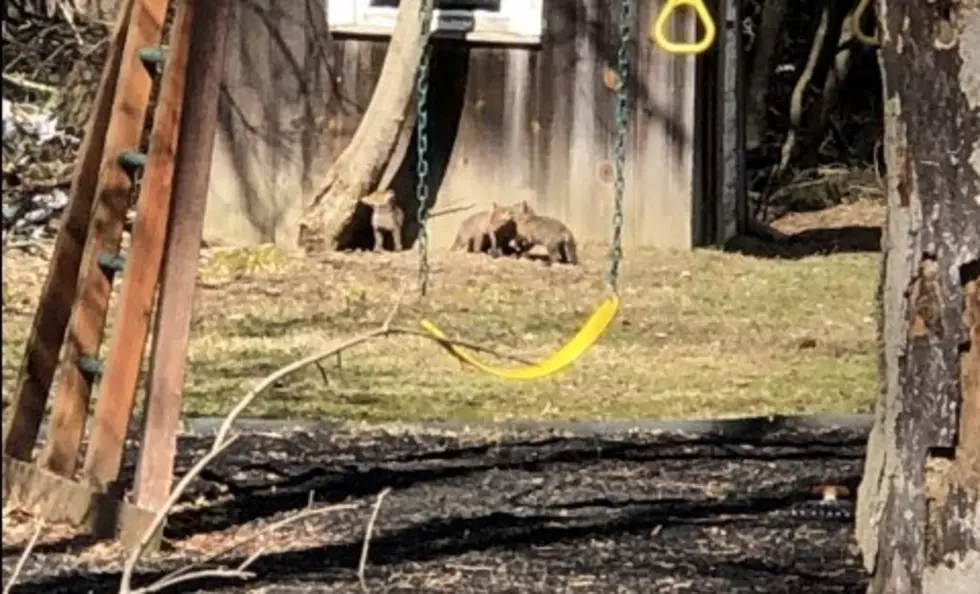
Skunks Parade Through Elma
I had to share this photo! This is why I try to keep a camera handy at all times. This is a family of skunks that crossed the road in front of me the other day. They sure are cute but I doubt I would want to get any closer. Thank goodness for a good zoom lens!Ican recall when we were kids, my father had a big issue with skunks in our garage. He tried everything he could to get rid of them but for some reason they never left! I guess when you have a family with 5 kids, the garbage must be pretty good and they seemed to love to chew the crap out the yard digging for grubs!
In case you wanted to learn more about these little stinkers, I found some interesting facts about them on the National Geographic website. For example did you know that...
Skunks usually nest in burrows constructed by other animals, but they also live in hollow logs or even abandoned buildings. In colder climates, some skunks may sleep in these nests for several weeks of the chilliest season. Each female gives birth to between two and ten young each year
Skunks As Pets?
It's true. There are people that choose to have skunks as pets. The scent part is removed and people say that they are very loving and intelligent pets. According to About.com...
Skunks are certainly not low maintenance pets. They will demand attention and play from their owners, sometimes very persistently. They require a variety of healthy foods in their diet. They can be potty trained with persistence, using litter or papers. The home will need to be thoroughly escape proof too. As for medical care, they should be spayed or neutered at a young age, and should be vaccinated as well (against common dog and cat diseases). Before getting a skunk it is advised you find a veterinarian who is willing to comfortably treat a skunk.
Help...I have been sprayed!
What to do now? I found a bunch of things online to answer this but the best source I found with the simplest answers was on yardener.com...
If you’re sprayed, or your pet is sprayed, here are some pointers on what to do about it.
Use an alkaline laundry soap such as Ivory Soap to wash exposed clothing or the dog. Raising the pH of the wash water breaks down the offending chemicals quickly. Another alkalinizing remedy suggested for washing your pet consists of 1 quart of 3% hydrogen peroxide solution, ¼ cup of baking soda, and 1 teaspoon of liquid soap. Use this brew first, then rinse the animal well in plain water. You may not wish to try peroxide on clothing.
Home remedies include canned tomatoes or tomato juice, cider vinegar, household ammonia, bleach, and smoke from a citronella candle.
More From 106.5 WYRK



![Blaze the Peregrine Falcon Joins Clay, Dale + Liz Live in Studio [VIDEO]](http://townsquare.media/site/10/files/2016/04/ChNKUTMU0AE8e8u-e1461929636483.jpg?w=980&q=75)
![The Most Mesmerizing Elk Parade Ever [VIDEO]](http://townsquare.media/site/10/files/2014/04/elk.jpg?w=980&q=75)

![Internet Famous Raccoon Seized By Wildlife Agency [VIDEO]](http://townsquare.media/site/10/files/2013/08/ScreenHunter_01-Aug.-19-14.34.gif?w=980&q=75)
![This Is One Talented Raccoon! [VIDEO]](http://townsquare.media/site/10/files/2013/04/hqdefault18.jpg?w=980&q=75)
